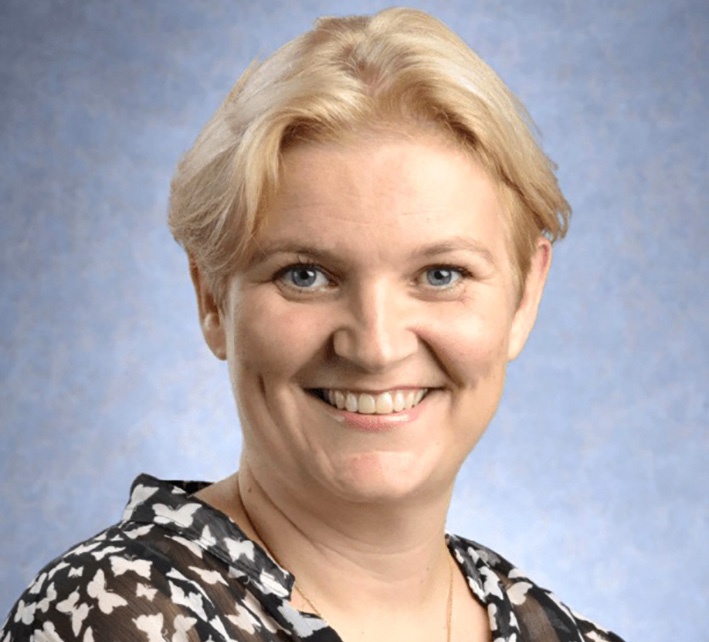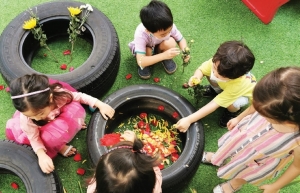Using modern play-based and child-led learning
What is your assessment of the current international education landscape in Vietnam, and what are the emerging trends?
 |
| Michelle Dinh-Jones, Systems Little House International Kindergarten’s educational director |
Education is an essential need that will never go away and the education sector everywhere is constantly looking for new ways to expand, grow, and develop. Vietnam in particular is a very attractive country for foreign investment at this time and every foreign investor brings an international workforce, and every workforce brings their families, therefore private international education in the country is booming.
For many international families, knowing that their children will have equitable or better education opportunities while they are away from home is an additional benefit for them to work overseas. So, in a way, having good international schools available is a crucial factor to support Vietnam’s economic growth.
Currently the global trends post pandemic are quite different from those in Vietnam at the moment. There is a focus on environmental protection & sustainability. Educational institutions are not only considering how to prepare children for a future with climate change, but also equip them for jobs that currently do not exist related to solving climate change issues.
Just last week I attended an International Education Conference in Bangkok and one of the keynote speakers shocked the audience when he explained that it was predicted that in 40 years, half of kindergarteners today will be working on environmental protection, rejuvenation, and sustainability projects in their workplace. This is because every organisation around the world will have to have a department, section, or officer dedicated to dealing with the impact of climate change. He continued by urging educators to start now to prepare these children to acquire the skills that they will need for the future.
We recognise that this is a huge responsibility and one that we take very seriously – to prepare young children for an unknown future. However, we also regard it as an amazing opportunity to lead by example and use our innovative and authentic child lead, emergent curriculum to nurture the children’s love of learning through our core values of curiosity and creativity and inspire our teachers, as well as partner and learn alongside the parents and families within our school, on how best to prepare children for the future.
Are climate change and environmental issues a focus of your education?
Within our authentic and innovative child-lead, play-based curriculum, sustainability and environmental protection and rejuvenation is certainly something that our team is passionate about. We use take tiny steps everyday – for example, only have natural resources and furniture such as wooden toys, tables, and chairs within our classrooms and no single-use plastic within our schools. We also reuse and recycle; families may donate unwanted plastic toys and we will act responsibly by reusing them and not throwing them away.
We also focus on having a healthy menu within our schools, raising awareness with the children about what they are eating, helping them understand that processed food takes a lot of energy whereas natural food, like fruit and vegetables, are more environmentally friendly.
Another example would be food waste. As a child-led school, the children serve and feed themselves and we try not be wasteful. Often times when children first start at our school, they can seem quite nervous as they are used to being fed and not having a choice of what to eat and how much. Over time, the children learn to serve themselves adequate portions and identify their likes and dislikes, leading to more independence and better cooperation and decision-making.
Finally, we make it our responsibility to source equipment and materials that are locally made. For our youngest children, we make our own natural paint because we want to avoid buying more plastic or using products with unknown chemicals.
How is environmental education manifested in your curriculum?
We are inspired by the Reggio Emilia philosophy, which has a child-led rather than adult-prescribed curriculum and very much focuses on respect for the environment and nature. Our authentic curriculum means that we follow the interests of the children, respect their play as a form of learning, and understand that the responsibility of the teachers is to guide and support their learning.
All Reggio inspired teachers must be fully aware of the developmental and academic goals for a certain age group and while they observe the children at play, they try to fit the prescribed curriculum into their play. For example, as children are playing in the pretend kitchen corner of the classroom, the teacher might want to introduce a literacy component of the prescribed curriculum with some letter writing - so might ask the children if they would like to write a recipe or a menu.
Most of the time when you connect with children through their play, they learn an academic lesson without realising it. For them, the lesson is part of their play and is fun and research shows, lessons learnt in this way are retained more efficiently.
While it may seem counterintuitive, the learning that comes from play is phenomenal. Extensive research shows that children better retain, consolidate, communicate, and share knowledge far more effectively and efficiently with a play-based, child-led curriculum versus traditional curricula and teaching methodology, as through play their brain function is heightened learning becomes a natural process.
 | Preschool potential ramps up Opportunities for international education investment are increasing as the Vietnamese government attempts to encourage involvement in the country’s non-compulsory early childhood education. |
What the stars mean:
★ Poor ★ ★ Promising ★★★ Good ★★★★ Very good ★★★★★ Exceptional
Related Contents
Latest News
More News
- Vibrant Vietnamese cuisine fit for global tastes (June 09, 2025 | 10:42)
- Vietnam can be global hot spot in 2025 (January 29, 2025 | 00:38)
- Promoting tourism and hospitality with sustainability (January 28, 2025 | 09:00)
- Vietnam centres on eco-luxury tourism and hospitality (January 28, 2025 | 02:06)
- Growth prospects for Vietnam’s event tourism in 2025 (January 28, 2025 | 01:18)
- Core values drive success at Marriott (January 24, 2025 | 16:00)
- Hoteliers to prioritise eco-luxury (January 04, 2025 | 09:00)
- Vietnam upscale tourism on the rise for 2025 (December 30, 2024 | 12:03)
- Addressing concerns can shape green hospitality (December 04, 2024 | 10:24)
- Vietnam’s sports economy to lead a new era of development (November 06, 2024 | 16:31)

 Tag:
Tag:




















 Mobile Version
Mobile Version